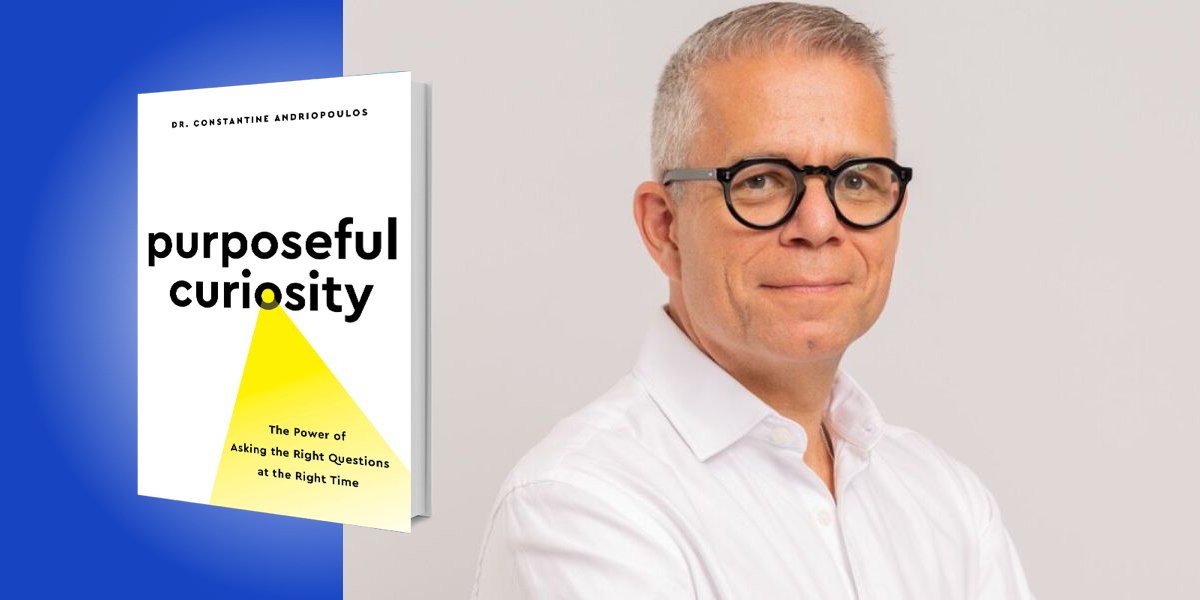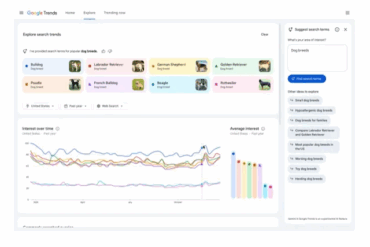Constantine Andriopoulos is a Professor of Innovation and Entrepreneurship at Bayes Business School, in City, University of London, and the Director of Avyssos Advisors, an innovation management consultancy.
Below, Constantine shares 5 key insights from his new book, Purposeful Curiosity: The Power of Asking the Right Questions at the Right Time. Listen to the audio version—read by Constantine himself—in the Next Big Idea App.
1. Uncover your itch and turn it into a project.
On November 20, 2020, Rocket Lab, a leading California-based aerospace manufacturer, launched its Electron rocket, a small reusable rocket. The launch was the brainchild of Peter Beck, an engineer from New Zealand and the founder and CEO of Rocket Lab. Beck’s itch was to figure out a cheaper way to get things into orbit. To do so, he had to figure out ways to bring down the cost of his rockets. While NASA’s rockets can cost up to $1.6 billion to launch, each Rocket Lab small-satellite low-orbit launch, costs about $5 million.
Beck’s fascination with rockets started at a young age. As a teenager, he became curious as to whether he could build one. He started by reading as much as he could about the subject and then began to experiment with different designs in his garden shed. At the age of 18, he strapped a rocket engine to the back of a custom-made bicycle and managed to ride at about a hundred miles an hour. Instead of attending university, he accepted a toolmaking apprenticeship, while at night, he continued to develop his rocket engines. In 2006, he founded Rocket Lab. Like Beck, we should start by focusing on a purpose that gets us up in the morning, and with a conviction that everything is understandable. So how can you ignite that spark?
First, you need to get yourself into the right mindset. You must activate a sense of wonder. Then you need to look for inspiration. Inspiration may come from everywhere. Try asking questions like; What if? Am I sure? What’s next? Have I looked closely enough? Have I looked everywhere?
Then select a topic that interests you enough and that you can pursue deeply for a long time. How do you choose which curiosity journey to follow? Three things make an itch worth focusing on: boundaries, purpose, and belief.
Pushing boundaries is about addressing hard problems, seizing exciting opportunities, or going where no one has gone before. This way, your curiosity journeys will be fuelled by lots and lots of smaller puzzles or mysteries. The purpose must be personal. Be emotionally connected to a worthwhile cause and immerse yourself in it. The belief must be concrete. As a point of departure, believe that everything is understandable or will eventually become understandable, with the help of others.
Then, grant yourself permission to explore. You have fallen in love with your puzzle but wonder if you can pull it off. It is all too easy to think of all the issues that stop us from embarking on a journey. You may have caught yourself thinking about starting projects, and then jumping from idea to idea without getting started. None of us is immune to this approach, but it is impossible to start a curiosity project if we explore haphazardly and butterfly-like. You must take control.
“Don’t wait for others to tell you what to do or confirm that it is OK to start.”
Take ownership of your curiosity project. Don’t wait for others to tell you what to do or confirm that it is OK to start. Grant yourself permission! When you find something that you are passionately curious about, rather than initiating your exploration in private, go public. Declare it to the whole world! Start investing time, energy, and resources. Hand yourself over to your curiosity either gradually, or by going all in.
2. Become an expert fast.
When Marshall Culpepper, the American serial software entrepreneur, founded KubOS with an aim to develop a secure, open-source platform for space-flight software, he had to become an expert quickly. He faced a significant challenge though: he had neither the formal qualifications nor any relevant experience in astronomy. Undeterred by his own naivety and seduced by the business opportunity, Culpepper immersed himself in the science of astronomy. Searching online for insights proved very useful, but what he found particularly beneficial was Coursera’s online course on astronomy and aerospace engineering. Like Culpepper, many people who work nine to five jobs decide to teach themselves new skills, launch a business, or explore a new area of interest. They shouldn’t let their lack of relevant formal qualifications or experience deter them from pursuing their curiosity journeys.
When you are passionate to learn as much as you can about the subject that stirs your curiosity, you can create your own learning environment, set your own learning goals, and plan your own lessons. How do you go about this?
First, establish your framework. Be specific about your learning goals. What do you want to know? Develop a timetable for the subjects that you want to study. Create your schedule and stick to it!
Now create your own curriculum. You have set aside the time you need to study, and you have claimed a distraction-free place for your work. Now comes the hard part, but it is also the fun part: Gather the resources you require to fulfil your curiosity. The internet has excellent resources, but be disciplined. Before you run every conceivable search you can think of, set some time constraints and focus your search. Start by gaining a broader understanding of your new area by reviewing other people’s work online. Knowledge that has already been collected and disseminated by others has two key benefits.
First, you understand the state of the field by looking at what others are doing, and you can build on that to make further improvements. During your research, ask two questions: What is really new? What is really interesting? Soak up expertise from a wide range of internet sources: articles, academic studies, reports, blog posts, online tutorials, and courses which are easily accessible. Select what is important by filtering the noise and questioning everything you read. Search online, immerse yourself in your new domain, and practice disciplined serendipity.
At the same time, build your own community. Reach out to experts, find fellow curious seekers, and crowdsource wisdom by developing an outreach program. Don’t be afraid to ask questions. Always dig deeper. Curious people do not rely exclusively on digitized resources. They balance screen time with field trips. They search through archives, learn from specialists, and ask experts for recommendations. Piece together the puzzle by actively reading, looking for interesting insights, and spotting what others have missed.
3. Ask: Who is with me?
Click HERE to read the remainder of the article.





